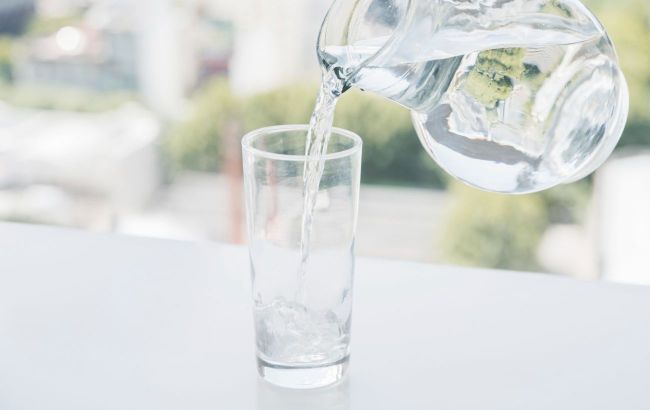Staying hydrated: Expert's advice on daily water consumption
 Guide to daily hydration (Photo: freepik.com)
Guide to daily hydration (Photo: freepik.com)
We are all made of water and know the rule of eight glasses daily. However, the recommended intake depends on gender, age, activity level, and special physiological conditions like pregnancy or breastfeeding.
How much water you should drink and how to do it comfortably, according to the Ukrainian dietitian Oleh Shvets.
Water intake guidelines
For individuals aged 19 and older, the recommended daily fluid intake is approximately 3.8 liters for men and 2.8 liters for women. This includes all fluids consumed throughout the day, including drinks and water-containing foods like fruits and vegetables. Men should drink 13 cups (200-240 ml each) from beverages alone, while women should drink 9 cups.
The recommendations for children vary by age:
- Children aged 4 to 8 should drink 1.1 liters daily or 5 cups.
- Children aged 9-13 should drink 1.6-1.8 liters, or 7-8 cups.
- Teens aged 14 to 18 should drink 1.8 to 2.6 liters or 8 to 11 cups.
Pregnant women of any age are advised to drink 2.3 liters or 10 cups of water daily. Breastfeeding women may need to increase their water intake to 3 liters or 13 cups.
When to drink more
Climate or altitude: If you live in a hot climate or at an altitude above 2,500 meters.
Physical activity: If you exercise frequently, it is recommended that you drink 480 to 570 ml of water 2-3 hours before the workout and an additional 230 ml immediately before and after. If the workout lasts more than an hour, replenish water during the exercise.
During fever, vomiting, or diarrhea, your body may lose more fluids than usual, so you may need more water. A doctor may recommend electrolyte drinks to maintain balance.
Why excessive water can be harmful
Drinking too much water can also be harmful. Excess water can dilute electrolytes in the blood, leading to their relative deficiency. This can cause hyponatremia, which is characterized by disorientation, headache, fatigue, nausea or vomiting, irritability, muscle spasms, seizures, weakness, and, in severe cases, coma.
People with smaller body sizes and children are more prone to developing this dangerous condition. Active individuals, such as marathon runners who consume water quickly, are also at high risk.
Those at risk should choose sports drinks containing sodium and other electrolytes during workouts. This helps replenish the electrolytes lost through sweating.
How to consume enough water
Food provides about 20% of daily fluid needs. In addition to drinking 9 to 13 cups of beverages daily, eating plenty of fruits and vegetables is recommended. Foods high in water content include watermelon, spinach, cucumbers, green peppers, berries, cauliflower, radishes, and celery.
Drink whenever you feel thirsty, including during meals, and always carry a water bottle with you. You don't have to limit yourself to just water. Other sources of fluids include milk, broth, tea, and coffee. However, avoiding sugary drinks and preferring water when possible is advisable. You can add flavor to water by squeezing fresh lemon or lime juice.
During intense workouts, it is recommended to drink a sports drink containing electrolytes to maintain water-electrolyte balance.
Previously, the dietitian explained the most important vitamin that helps with wound healing and bone health.
Read also about the 7 healthy fruits and vegetables everyone should eat this summer.
This material is for informational purposes only and should not be used for medical diagnosis or self-treatment. Our goal is to provide readers with accurate information about symptoms, causes, and methods of detecting diseases. RBС-Ukraine is not responsible for any diagnoses that readers may make based on materials from the resource. We do not recommend self-treatment and advise consulting a doctor in case of any health concerns.

